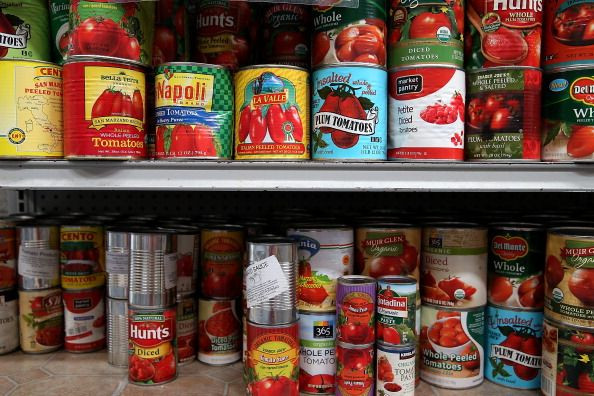Federal Government Set To Tighten Food Stamp Work Requirements

The Trump administration announced final rules on Wednesday that will tighten work requirements for the federal food stamp program, now known as the Supplemental Nutrition Assistance Program (SNAP). The move is expected to reduce benefits for hundreds of thousands of Americans.
The rule is expected to reduce the number of SNAP recipients by limiting the ability of states to exempt adults without dependents from federal work requirements. Under current law, adults are limited to three months of benefits during a three-year period unless they agree to work 20 hours per week. However, many states waive this federal work requirement. The Trump administration's rule change would make it more difficult to get these waivers.
"We want to encourage people by giving them a helping hand, but not an infinitely giving hand," Agriculture Secretary Sonny Perdue said in a statement.
Brandon Lipps, who serves as the deputy undersecretary for the U.S. Department of Agriculture's Food Nutrition and Consumer Services, said the rule change is expected to save the federal government $5.5 billion over five years while cutting back on benefits for 688,000 SNAP beneficiaries.
While the administration argues the rule change will promote personal responsibility and save taxpayers money, critics in Congress argue that the move risks harming vulnerable Americans.
“The president has cynically weaponized USDA as a blunt political instrument, in clear opposition to its mission to ‘do right and feed everyone,’” said Rep. Marcia Fudge, D-Ohio, who chairs the House Agriculture Subcommittee on Nutrition, Oversight, and Department Operations, said.
Outside advocates also criticized the rule. "If the rule is implemented, the nation would see higher rates of hunger and poverty. The final rule would cause serious harm to individuals, communities, and the nation while doing nothing to improve the health and employment of those impacted by the rule," James D. Weill, president of the Food Research & Action Center, said in a statement.
Approximately 36.4 million Americans benefit from the SNAP program. Due to a strong economy, enrollment was already declining, with 1.7 million fewer people taking advantage of the program this year than last year.
Unless Congress or the courts act to stop or delay the rule, it will take effect on April 1.
© Copyright IBTimes 2025. All rights reserved.





















